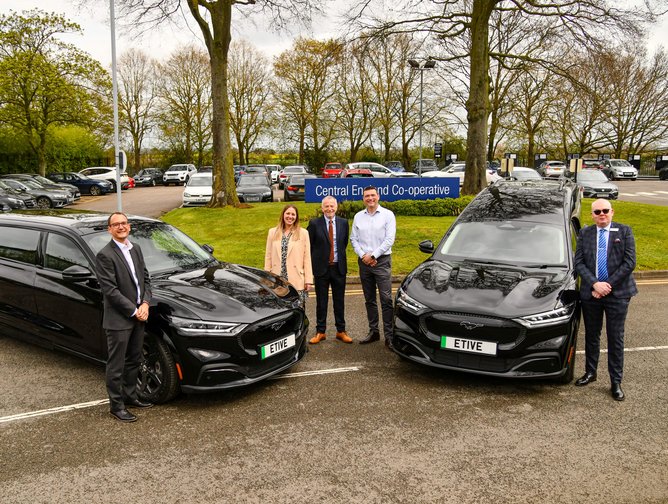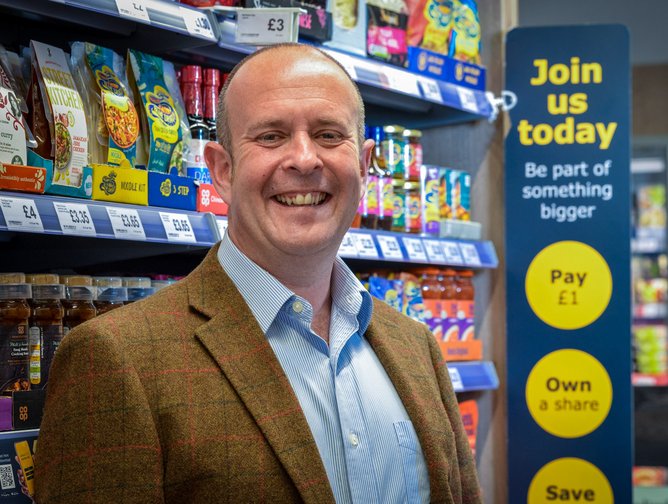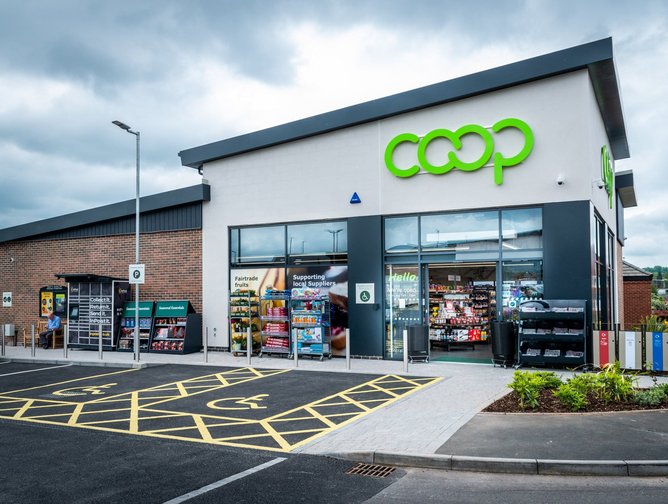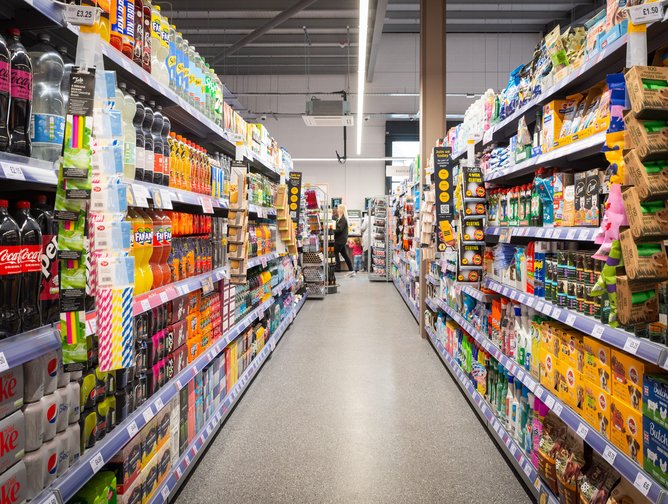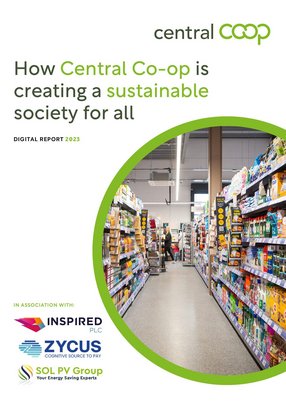How Central Co-op is creating a sustainable society for all
Central Co-op can trace its history all the way back to the mid-19th century, when the modern co-operative movement was just taking off.
Today, it exists as the second-largest co-operative in the UK, having assumed its current form following the merger of Anglia Regional Co-operative Society and Midlands Co-operative Society back in 2013.
At the heart of Central Co-op’s operations is its retail offering, consisting of more than 250 convenience stores across the nation. On the other side of the business is the funeral division, comprising 180 funeral homes, a crematorium, three stone masonry outlets and a coffin factory. And that’s without even mentioning the organisation's property arm, responsible for buying, selling and maintaining thousands of buildings.
Many of Central Co-op’s core values remain the same as those established around 175 years ago but, in 2021, the company unveiled its new purpose: to ‘create a sustainable society for all’. This ethos now stretches right across the business, impacting decision-making and actions at every level of all departments.
That includes in the field of procurement, which is headed up at Central Co-op by Paul Lockwood, who joined the company in February last year.
“Within that new strapline there are numerous themes,” explains Lockwood. “There’s the environment and sustainability; there’s self-funding; there’s inclusion; and there’s self-help, as well.
“You may think when you join Central Co-op that you’re joining a movement, but actually what you join is a social movement, which makes for an interesting dynamic. It’s amazing how, more than 150 years after the first co-ops were started, their core values are still just as relevant today.”
Energy crisis accelerates Central Co-op’s solar strategy
It certainly hasn’t been a straightforward start to life at Central Co-op for Lockwood, who became Head of Procurement just a couple of weeks after the global energy crisis escalated thanks to Russia’s invasion of Ukraine.
However, as the saying goes, in the midst of chaos there is also opportunity. That opportunity for Central Co-op came in the form of accelerating its investment in solar power, an important future-proofing strategy that had long been discussed.
Solar panels were installed at two convenience stores by the end of July; within a further eight weeks, Lockwood and his team had tended and contracted a provider to roll out solar panels at no less than 180 stores by end of 2023.
Moreover, in May the company opened a new shop in Staffordshire which, for the first time, had panels pre-installed.
“We’re just over a third of the way through that journey and we’re very fortunate to have an executive and board who want to kick on with the investment,” says Lockwood. “We’ll have payback in less than three years based on our current commercial model which, for us, is unheard of.
“For me, it’s brilliant as well because it’s something I’ve always been passionate about.”
Praising Central Co-op’s key partner on the project, he adds: “The supplier we’ve had, SolPV, has been amazing and really hit the ground running.
“Now, the exec is asking me ‘what’s next?’, which is exciting and it’s great to be challenged like that.”
Bidding to become self-sufficient
Creating a sustainable society for all covers numerous aspects but, as Central Co-op’s solar efforts suggest, a significant proportion of the strategy relates to energy usage and becoming more self-sufficient in this space.
In the relatively near future, it is hoped the organisation will be producing 100% of its own power, which is evidently a big ask. Nevertheless, things are most certainly heading in the right direction.
Lockwood forecasts that the solutions currently being put into place at convenience stores will produce around 30% of the energy needed in a supermarket setting. Within that, simple steps have been taken such as investment in more efficient freezers and putting doors on chiller cabinets.
“It all contributes,” Lockwood goes on. “It’s all very well producing green electricity, but it’s no good if you’re then burning it off really quickly.”
That all-important co-operative team spirit is truly coming to the fore from an energy perspective, with the launch of a new consortium including Central Co-op and a host of independent co-ops. The goal is to collaborate on the purchase of utilities, while sharing knowledge and investment opportunities.
“This is a journey we’re going on together,” says Lockwood. “We’re trying to share that good information between ourselves to help each other on that journey.
“There has always been co-operation, but last year – with the energy crisis and cost-of-living crisis – created a need to do more, and it has been fantastic. Coming together and sharing resources will help us to be more sustainable, not just as individual societies but as a movement.”
Energy strategy extends to colleagues
Crucial to Central Co-op’s values is looking after its people, to the extent that its investment in renewable energy capabilities has also been extended to colleagues.
“It’s great investing in our stores,” continues Lockwood, “but part of what we do as an organisation is invest in our colleagues.”
After receiving various enquiries, Central Co-op reached an agreement with its solar provider to extend the commercial terms of their deal to staff, giving them the option to purchase clean energy infrastructure such as panels or EV chargers.
“For us, it’s about putting options in front of our colleagues and leaving the decision up to them,” says the procurement chief. “It’s quite a unique scheme, but it’s something we had the ability to do.
“So far, we’ve had about 200 colleagues show interest and it’s only been going for a few weeks. It definitely helps as well that we’re offering them a trusted provider with a quality product that is going to last.”
Funeral fleet going green
Despite the industry’s obvious traditions, Central Co-op has been careful not to overlook green aspirations in its funeral business, too. This process has begun with its fleet of vehicles, which can cost upwards of £120,000 apiece – making for a complex and expensive transition.
“It’s a significant investment,” Lockwood explains. “For us, we had an ageing fleet and we had reached a crossroads, so you could say it’s been a case of right place, right time.”
In looking to go green, Lockwood’s team went through an exhaustive procurement tender exercise, before finally identifying the Ford Mustang Mach-E as its limousine and hearse solution. The new fleet is due to be rolled out over the next 12 months.
Investment has also been made in charging infrastructure courtesy of a new partnership, and will evolve as the fleet expands: “For us as an organisation this is massively important, and there’s also an expectation from the public. This investment has been really popular with our colleagues as well.
“We are a traditional business, but we have to evolve. When we’re talking about helping the environment, we need to look at every aspect of what we do.
“I think what we’re doing is quite cutting edge for the industry and it’s an exciting time for us as a business. There are bigger providers and bigger competitors out there who are maybe not as far down the road as we are in this space.”
‘Amazing’ partners across Co-op’s business
Clearly, a vast operation like Central Co-op cannot function without crucial input from partner organisations.
“We’ve been fortunate to have some amazing partners,” says Lockwood. “One of the things we talk about with regards to partnerships is trying not to just have a transactional relationship. We want to put in effort across the business – not just in procurement – to drive value and sustainability.”
One such example of a fruitful partnership is with Lyreco, which has spent time trying to understand the motivations of Central Co-op and its colleagues. As a provider of supplies and workplace solutions, the firm introduced a bio-hygiene cleaning product which has proved to be a roaring success in terms of cost reduction and environmental benefits.
Technology-wise, Central Co-op recently implemented a purchase-to-pay solution provided by Zycus, a pioneer in cognitive procurement software. Positive impacts have already been seen in various departments through the automation of processes which were previously paper-based or required manual inputting.
Lockwood adds: “We're trying to create a core of suppliers who we work with and, instead of us just going to them, we want it to be a two-way street, giving them the opportunity to talk about what they can do.
“For us, with our suppliers, whether it's in the retail business, property business or funeral services, that's a common approach we're trying to roll out at the moment.”
Central Co-op has also entered into a partnership with Inspired Energy, a consultancy which is helping various co-ops with the process of buying utilities.
Lockwood continues: “Their insight so far with regards to the environment has been massively powerful. They’re helping us future-proof ourselves as an organisation which, in essence, involves buying smartly and buying with the right people – but also looking at who we are in terms of sustainability, which is at the heart of what we do.”
Looking ahead
With eyes on the future, Lockwood believes macro-economic factors and the growing importance of sustainability must remain key considerations in the procurement space.
The war in Ukraine has, of course, had a profound impact on the supply chain and forced companies to rethink their suppliers.
“We are living through turbulent times,” Lockwood concludes. “What’s going on in Ukraine has been utterly horrendous and there has been a huge knock on effect throughout the world.
“One of the things I’m looking at and considering is the ability to source locally because shipping goods over from the Far East is more expensive. Sustainability’s massive as well, so local sourcing is important when we start looking at our carbon footprint.
“I think for us, working in procurement, we're probably going to find more challenges and demands in understanding who our supply base is in more detail and measuring their impact on the environment.”
